Amateur historians uncover WW2 plane wreckage to document nation’s wartime history
KUALA LUMPUR: “Mayday! Mayday! Mayday! We are going down.” This distress call was probably the last words uttered by the pilot of a Royal Air Force (RAF) B24 Liberator KL654 aircraft, carrying a crew of eight and war supplies, that had taken off from Cocos Island, Australia, before crashing in a remote forest in Negeri Sembilan on Aug 23, 1945, during World War 2 (WW2).
But the British military bomber’s wreckage as well as certain remains of the victims were only found some 50 years later in December 1996 at Gunung Telapak Buruk, situated between Kampung Ulu Klawang, Jelebu, and Pantai, Seremban.
The remains were eventually moved to the Commonwealth Military Cemetery in Cheras for burial on Oct 1, 2012, witnessed by the deceased’s next of kin.
The discovery was made possible thanks to the tireless research efforts of historians as well as members of the Malaya Historical Group Society (MHG), an organisation dedicated to researching, recording, documenting and publicising Malaysia’s aviation and war history.
Research time consuming affair
MHG, which has been active since the early 1990s but was only registered as a society in 2020, also helps to locate crash sites and identify the wreckage of aircraft believed to have crashed in Malaya during WW2.
According to its chairman Shaharom Ahmad, MHG’s approach of zooming in on war events from the past is aimed at enabling society, especially the young generation, to better understand the history of the nation before it gained independence on Aug 31, 1957.
He told Bernama besides WW2 aircraft crash sites, the society also conducts studies and research on Malaysia’s military historical sites in general with the intention of documenting and preserving them for the benefit of future generations.
Way back in the 1990s, MHG embarked on investigating and searching for the wreckage of allied aircraft that crashed or were downed in the thick jungles of the country during WW2.
Since then, MHG – which had seven members comprising amateur military historians and aviation buffs – had helped with efforts to locate the crash sites and uncover the wreckage of several aircraft.
Besides the WW2 finds, the society was also involved in efforts to detect the wreckage of a British RAF Dakota KN 630 reconnaissance aircraft that crashed in the middle of a dense jungle in Gua Musang, Kelantan, near the Titiwangsa mountain range on Aug 25, 1950.
The plane, carrying 12 crew members and passengers, was believed to have crashed due to poor weather and technical problems. It was reportedly flying back to its base in Singapore after completing its mission of dropping smoke markers near Kampung Jendera in Ulu Kelantan to help bombers pinpoint communist camps during the Emergency era.
It was only in November 2008 that the remains of the crash victims were successfully retrieved from the site and handed over to their families.
Explaining how MHG helps with the search and identification of wartime wrecks, Shaharom said it first conducts comprehensive research to obtain information on the planes and the possible location of their wreckage from the public and the victims’ next of kin.
“This is actually a lengthy process and can take us several years to do. Although it is a highly challenging task for us, we are able to do it (locate the aircraft wreckage) with the help and cooperation of various agencies such as the state government, museum authorities, (high commissions and) embassies and researchers from abroad,” he said.
He added the wreckage of several Australian, American and Japanese military aircraft could also possibly be still lying undetected in various locations in Malaysia.
Conserve historical relics
Shaharom said MHG was also involved in finding, documenting and recording military artefacts and fortresses in an effort to conserve the nation’s war history.
Among the fortresses it stumbled upon was an underground bunker in the Sultan Azlan Shah Airport area in Ipoh, Perak, which was believed to have been built sometime in 1941 and was used by British soldiers to protect themselves against Japanese air attacks.
The society also identified a 6.47-hectare WW2 battle site in Kampar, Perak, where British and Japanese soldiers clashed during the Japanese Occupation.
“Since 1995, MHG has succeeded in identifying several battle sites in the country that are linked to WW2,” he said, adding that they took it upon themselves to put up signboards to provide information on the battles that took place there. “We don’t want the sites’ historical value to be frittered away. Our society intends to preserve these historical sites for our future generations to appreciate.”
Shaharom added that MHG was also appealing to the relevant authorities to gazette the wartime battle sites as heritage sites and tourist destinations, saying this would expose the public to the crucial events that took place in the country before it achieved independence.
He said the initiatives carried out by his society have an impact of their own as they encourage the community to join in efforts to unravel the past and explore the wartime struggles of the people.
“Many people, especially today’s young generation, are not very interested in our nation’s history and as researchers, we (MHG) are responsible for instilling in them an interest in history, which is one of the subjects (taught in schools),” he said.
Shaharom said MHG was also actively involved in holding exhibitions related to the nation’s history at schools, colleges and universities nationwide.
“The accounts of Malay soldiers who struggled to defend the people and their homeland must be shared with the people so that they appreciate the freedom they enjoy today.
“Historical events must be taken into account and used as guidance. The concept of unification (of the people) must always be strengthened to prevent foreign elements from colonising our country again,” he added. – Bernama


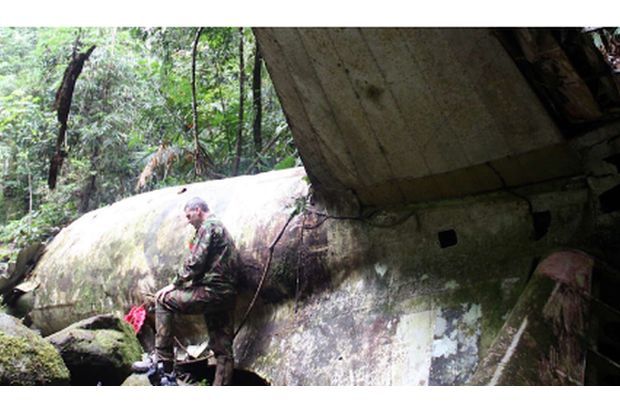




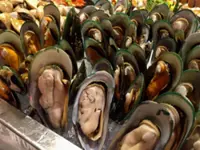
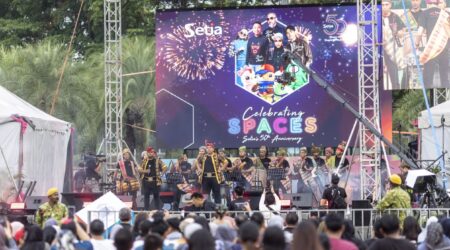
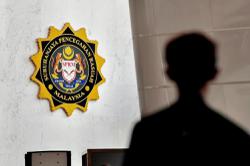

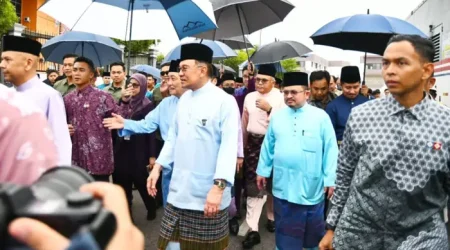

Leave a Reply